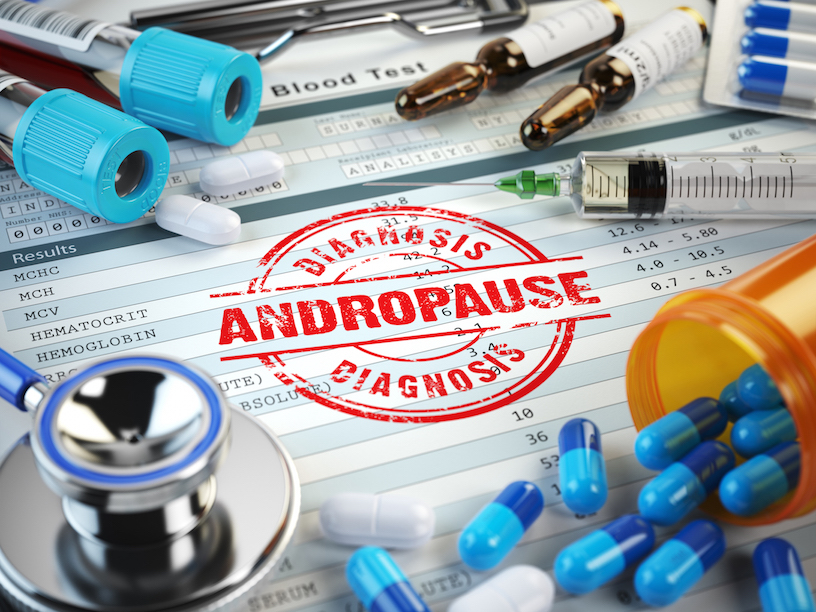Hormones Play Different Roles In How Your Body Ages
Hormones play a huge role in aging. They’re often referred to as “chemical messengers” in your body, and each is responsible for different functions that keep your body youthful and healthy. If your androgens, or sex hormones like estrogen and testosterone, are out of balance, both men and women might suffer from symptoms like weight gain and hair loss. An ongoing or excessive surge of hormones like insulin and cortisol may lead to life threatening illnesses like diabetes, if things like stress, sugar and carbohydrate intake are not kept in proper balance.
The good news is, it’s easy to have your hormones tested, and this can be done at a variety of places including your physician’s office, some local pharmacies, and many independent or national blood testing centers. You can even do testing with highly detailed medical kits in the comfort of your own home. Testing can be done in different ways, typically with blood or saliva.
Here’s a quick rundown of the different hormones that affect our everyday health, and the part hormones play in how we look and feel as we all grow older.
Insulin
Insulin provides energy to cells, and helps balance your blood sugar level. It regulates how your body uses glucose and fat for energy. Made in your pancreas and located behind your stomach, insulin causes your small intestine to absorb glucose that is sent from your bloodstream after it breaks down carbohydrates. It’s absorbed by your cells and used for energy.
Low Insulin: Hypoglycemia can occur, causing fatigue, confusion, pale skin, inability to speak, sweating, muscle twitching, seizures and loss of consciousness. A lack of insulin can lead to diabetes.
High Insulin: The cells in your pancreas can wear out over time. Male hormone levels can also increase in women, leading to polycystic ovary syndrome, which makes becoming pregnant difficult. Too much insulin can lead to diabetes, obesity, increased risk for atherosclerosis and heart disease.
Cortisol
Cortisol is known as the “fight or flight” stress hormone. It kicks in to boost energy, alertness, strength and speed to aid your body in times of perceived danger. This was great 1000 years ago, when cavemen needed to escape wild animals. But today, too many people have chronic stress that triggers cortisol seemingly all day, every day. Eventually, this constant toll may cause your body to think you’re crying wolf and surrender, and just burn and fizzle out.
Low Cortisol: Unexplained fatigue, unstable blood sugar, joint pain, indigestion, allergies and food sensitivities.
High Cortisol: Sleep issues, brain damage (forgetfulness, inability to concentrate and more), frequent sickness, depression, weight gain, indigestion, low testosterone and muscle loss.
Estrogen
Although estrogen is considered the “female” hormone and testosterone is considered the “male” hormone, both sexes have both. Interestingly, as men who tend to have more fat cells age, testosterone may convert into estrogen. This is also called the aromatase reaction, and it can be corrected.
For Women: Estrogen is key in the growth and development of breasts, pubic and armpit hair, endometrium, and regulation of menstrual cycle and reproduction.
For Men: A lack of estrogen may cause fat accumulation, which increases the risk for diabetes and cardiovascular diseases. Too much estrogen can contribute to prostate cancer, heart disease and gynecomastia (enlarged breasts).
There are 3 types of Estrogen:
- Estrone (E1)
- Estradiol (E2)
- Estriol (E3)
Estrogen also benefits many areas of the body including but not limited to:
- Brain: Protects nerves, increases serotonin, preps your body for sex and reproduction, maintains body temperature and may delay memory loss.
- Skin: Improves collagen, skin thickness and blood supply to skin.
- Bones: Assists in bone formation and helps prevent bone loss and osteoporosis.
- Heart & Liver: Helps reduce plaque buildup in blood vessels, decreases cholesterol and protects against atherosclerosis.
Estrogen Too Low:
For women: Painful sex, increase in UTIs, mood swings, hot flashes, headaches, depression, irregular periods, increased threat of osteoporosis.
For men: Fatigue, joint pain, loss of erections, loss of libido, anxiety, constant urination, hypersomnia (too much sleep) and more.
Estrogen too High:
For women: Bloating, mood swings, weight gain, decreased sex drive, irregular periods, headaches, fibrocystic developments in breasts, tenderness in breasts.
For men: Water retention, soft erections, insomnia, hot flushing, night sweats, bloating, brain fog, testicles seem smaller, breasts may appear enlarged.
Testosterone
Just like estrogen, and also an androgen, testosterone is a hormone that is present in both men and women. In fact, small amounts of testosterone are made by the ovaries and released into the blood stream; while for men, it’s made in the testes. For both sexes, Testosterone boosts libido and helps protect muscle mass. And for both sexes it typically starts to decline with age just after your twenties.
Testosterone Too Low:
For men: “Low T” causes low energy and low sex drive, erectile dysfunction, depression, osteoporosis, reduced muscle mass an inability to concentrate.
For women: Loss of bone and muscle mass, increase in fat, lower sex drive and reduced lubrication due to reduced sensation caused from lower blood flow to the vagina.
Testosterone Too High:
For men: Prostate swelling, decrease in sperm count, sleep apnea, fluid retention, increase in red blood cells, decrease in testicle size, depression, aggressiveness, impulsivity, anger and mood swings.
For women: Too much can lead to polycystic ovary syndrome (PCOS), a common endocrine disorder, which may lead to irregular periods, facial hair and infertility issues.
Coming next: DHEA, Melatonin, Progesterone, Growth Hormone
Credits:
https://www.diabetes.co.uk/body/insulin.html
http://healthyeating.sfgate.com/can-produce-much-insulin-2833.html
http://www.feedfixflourish.com/lifestyle/cortisol
https://www.medicalnewstoday.com/articles/277177.php
https://www.healthline.com/health/high-estrogen
https://en.wikipedia.org/wiki/Aromatase
https://dosagemayvary.com/high-estrogen-vs-low-estrogen-symptoms-for-men/
https://www.bodylogicmd.com/hormones-for-men/estrogen

